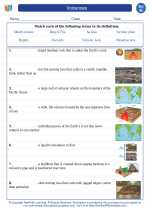Denitrification
Denitrification is a microbially facilitated process where nitrate (NO3-) is converted to molecular nitrogen (N2) and released to the atmosphere. This process is an important part of the nitrogen cycle, as it helps to return nitrogen to the atmosphere in the form of N2 gas.
Key Points to Remember:
- Denitrification is carried out by denitrifying bacteria, which use nitrate as a terminal electron acceptor in the absence of oxygen.
- This process occurs in anaerobic conditions, such as waterlogged soils, sediments, and the bottom of lakes and oceans.
- Denitrification contributes to the loss of nitrogen from soils, which can impact the fertility of agricultural land.
- It also plays a role in the global nitrogen cycle, influencing the balance of nitrogen in the atmosphere and the environment.
Study Guide:
1. What is denitrification?
Denitrification is the process by which nitrate is converted to molecular nitrogen by denitrifying bacteria in anaerobic conditions.
2. Where does denitrification occur?
Denitrification occurs in anaerobic environments such as waterlogged soils, sediments, and the bottom of lakes and oceans.
3. What is the role of denitrification in the nitrogen cycle?
Denitrification helps to return nitrogen to the atmosphere in the form of N2 gas, thus influencing the balance of nitrogen in the atmosphere and the environment.
4. How does denitrification impact agricultural land?
Denitrification can lead to the loss of nitrogen from soils, which can impact the fertility of agricultural land.
5. What are the key microorganisms involved in denitrification?
The key microorganisms involved in denitrification are denitrifying bacteria, which use nitrate as a terminal electron acceptor in the absence of oxygen.
By understanding denitrification, we can appreciate the significance of this process in the nitrogen cycle and its environmental implications.
.◂Science Worksheets and Study Guides Eighth Grade. Volcanoes
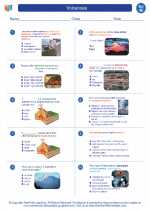
 Worksheet/Answer key
Worksheet/Answer key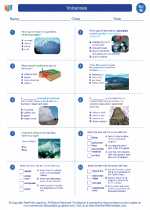
 Worksheet/Answer key
Worksheet/Answer key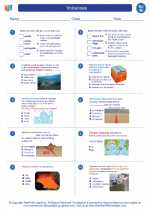
 Vocabulary/Answer key
Vocabulary/Answer key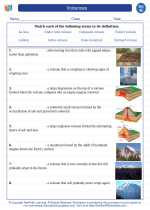
 Vocabulary/Answer key
Vocabulary/Answer key
 Vocabulary/Answer key
Vocabulary/Answer key